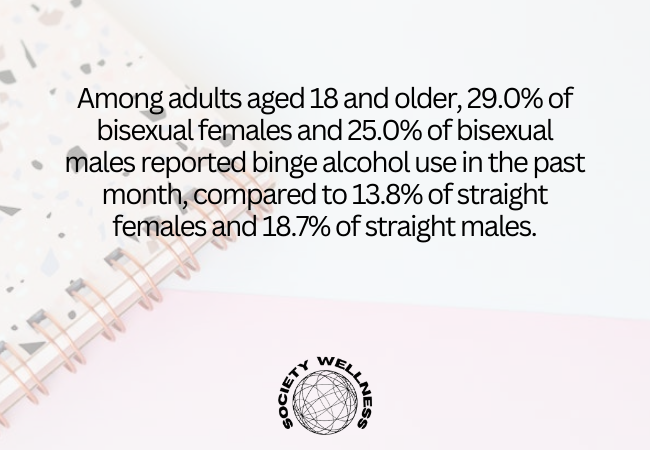Excessive alcohol abuse takes a toll on the body, affecting vital organs, mental health, and overall quality of life. While the damage caused by long-term alcohol use can be significant, the body has remarkable abilities to heal, especially when individuals commit to sobriety and seek professional help. For members of the LGBTQ+ community, recovery can come with additional challenges due to unique social and cultural stressors. That’s why specialized LGBTQ Addiction Treatment Programs are crucial to provide a supportive and affirming environment tailored to individual needs.
At LGBTQ Addiction Centers, we understand the physical, emotional, and societal factors that contribute to alcohol addiction. Through comprehensive programs like the LGBTQ Day Treatment Program, LGBTQ Night Treatment Program, and LGBTQ Evening Outpatient Program, we help individuals on their journey to recovery.
The Science of Alcohol Recovery: What Happens in the Body
The human body has an extraordinary ability to heal from the damage caused by excessive alcohol use, but the process requires time, commitment, and professional support. Recovery begins almost immediately after alcohol consumption stops, with noticeable improvements over days, weeks, and months.
Short-Term Changes (Days to Weeks)
- Liver Function: Within a few days, the liver begins to eliminate toxins more effectively, reducing inflammation and starting the healing process.
- Brain Chemistry: Dopamine levels begin to stabilize, improving mood and reducing cravings. Sleep patterns may also start to normalize.
- Immune System: The immune system strengthens as alcohol’s suppressive effects wear off, lowering the risk of infections.
Long-Term Changes (Months to Years)
- Liver Regeneration: Fatty liver can reverse entirely, and even some mild scarring can improve with sustained sobriety.
- Heart Health: Blood pressure and cholesterol levels drop, lowering the risk of heart disease.
- Cognitive Recovery: Memory and focus improve as the brain heals from alcohol-induced damage, although severe cases of alcohol-related dementia may show less recovery.
The Impact of Excessive Alcohol Abuse on the Body
Excessive alcohol consumption affects nearly every system in the body. The extent of damage depends on factors such as the duration of abuse, the amount consumed, and individual health conditions.
1. Liver Damage
The liver, responsible for processing alcohol, often bears the brunt of alcohol abuse. Over time, excessive drinking can lead to:
- Fatty Liver Disease: An early, reversible condition caused by fat buildup in the liver.
- Alcoholic Hepatitis: Inflammation of the liver that may cause pain, jaundice, and fatigue.
- Cirrhosis: Permanent scarring of the liver, impairing its ability to function properly.
2. Cardiovascular Issues
Chronic alcohol use raises the risk of high blood pressure, irregular heartbeat, and cardiomyopathy, a condition where the heart muscles weaken and struggle to pump blood effectively.
3. Neurological Effects
Alcohol disrupts brain function, leading to:
- Memory loss and difficulty concentrating.
- Mood disorders like depression and anxiety.
- Alcohol-related dementia in severe cases.
4. Gastrointestinal Problems
Excessive alcohol damages the stomach lining, leading to ulcers, acid reflux, and increased risk of gastrointestinal bleeding.
5. Immune System Suppression
Alcohol weakens the immune system, making the body more susceptible to infections and illnesses.
Can the Body Heal from Alcohol Abuse?
The good news is that the body has a remarkable capacity to heal once alcohol consumption stops. Recovery often depends on how quickly and effectively treatment begins.
1. Liver Recovery
In cases of early-stage liver damage, such as fatty liver, abstinence from alcohol can reverse the condition entirely. While cirrhosis is irreversible, stopping alcohol can prevent further damage and improve overall liver function.
2. Cardiovascular Improvements
Quitting alcohol reduces blood pressure and lowers the risk of heart-related complications. With time, heart muscles can regain some strength, improving overall cardiovascular health.
3. Brain and Mental Health
Brain function may improve significantly after sustained sobriety. While some cognitive impairments may persist, therapies like Cognitive Behavioral Therapy (CBT) offered in LGBTQ Substance Abuse Treatment can help address mental health challenges and improve emotional well-being.
4. Enhanced Immune Function
Abstaining from alcohol allows the immune system to rebuild, reducing the risk of infections and improving overall health.
Unique Challenges Faced by LGBTQ+ Individuals in Recovery
For LGBTQ+ individuals, recovery from alcohol abuse often involves additional complexities. Factors such as societal discrimination, internalized stigma, and minority stress can make the journey to sobriety more challenging.
Minority Stress
- LGBTQ+ individuals often face stressors related to societal acceptance, family rejection, or workplace discrimination. These factors can contribute to higher rates of substance abuse as a coping mechanism.
Intersectionality
- LGBTQ+ individuals may experience overlapping challenges, such as racism, transphobia, or economic inequality, further complicating recovery.
Importance of Affirming Spaces
- Many LGBTQ+ individuals feel alienated in traditional treatment settings that lack cultural competency. Programs like the LGBTQ Day Treatment Program and LGBTQ Evening Outpatient Program provide inclusive environments where clients can focus on recovery without fear of judgment.
Emotional and Mental Healing During Recovery
The journey to sobriety isn’t just about physical recovery—it’s also about addressing the emotional and mental impact of alcohol abuse. For many LGBTQ+ individuals, this healing involves navigating identity-related challenges alongside the effects of substance abuse.
Addressing Mental Health
- Dual Diagnosis: Many LGBTQ+ individuals face co-occurring mental health disorders like depression, anxiety, or PTSD. Specialized LGBTQ Substance Abuse Treatment includes therapies like Cognitive Behavioral Therapy (CBT) to address both addiction and mental health.
- Identity Affirmation: Recovery can be an opportunity for individuals to embrace their authentic selves, particularly in inclusive programs that affirm gender and sexual identities.
Building Emotional Resilience
- Therapeutic Interventions: Individual and group therapy sessions provide safe spaces to process trauma, rebuild self-esteem, and develop coping mechanisms.
- Peer Support: Programs like the LGBTQ Evening Outpatient Program foster connections with others who share similar experiences, reducing feelings of isolation and promoting healing.
- Mindfulness Practices: Techniques like meditation, yoga, and journaling help individuals manage stress and cultivate a positive outlook.
The Role of LGBTQ Addiction Treatment Programs
For LGBTQ+ individuals, overcoming alcohol addiction often involves addressing additional layers of stress and discrimination. Specialized LGBTQ Addiction Treatment Programs provide a safe, inclusive space where individuals can focus on recovery without fear of judgment.
1. Affirming and Inclusive Care
At LGBTQ Addiction Centers, we tailor our programs to address the unique needs of the LGBTQ+ community, including challenges like minority stress, identity exploration, and the impact of discrimination.
2. Flexible Treatment Options
- LGBTQ Day Treatment Program: Ideal for those who need structured support during the day while allowing evenings for personal responsibilities.
- LGBTQ Night Treatment Program: A great option for individuals who prefer treatment in the evening to accommodate work or other daytime obligations.
- LGBTQ Evening Outpatient Program: Offers flexibility while maintaining access to therapy and group sessions.
3. Comprehensive Therapies
Our programs include evidence-based therapies, such as individual counseling, group therapy, and family support, to help individuals address the physical and emotional effects of alcohol abuse.
Steps to Begin Recovery
- Acknowledge the Problem: The first step toward recovery is recognizing the impact of alcohol abuse on your health and life.
- Seek Professional Help: Specialized programs like those offered by LGBTQ Addiction Centers provide the tools and support necessary for sustained recovery.
- Commit to Sobriety: Abstaining from alcohol is critical for allowing the body to heal.
- Develop Healthy Habits: Focus on proper nutrition, regular exercise, and stress management techniques to support physical and mental recovery.
The Role of Nutrition in Healing
Proper nutrition is a cornerstone of recovery from excessive alcohol use. Years of alcohol abuse can lead to malnutrition, vitamin deficiencies, and organ damage, making dietary changes essential for physical healing.
Nutritional Priorities
- Hydration: Alcohol dehydrates the body, so replenishing fluids is critical. Water, herbal teas, and electrolyte-rich drinks help restore balance.
- B Vitamins: Alcohol depletes B vitamins, which are essential for energy production and brain health. Foods like leafy greens, whole grains, and lean proteins are excellent sources.
- Antioxidants: Alcohol increases oxidative stress, damaging cells. Antioxidant-rich foods like berries, nuts, and green vegetables support cellular repair.
- Proteins: Protein aids in tissue repair and helps the liver regenerate. Include lean meats, fish, tofu, or legumes in your diet.
Why Choose LGBTQ Addiction Centers?
At LGBTQ Addiction Centers, we provide inclusive, compassionate care for individuals in the LGBTQ+ community seeking recovery from alcohol addiction. Our comprehensive programs, including Alcohol Addiction Treatment, are designed to address the unique needs of our clients, fostering a sense of belonging and empowerment.
Conclusion
Recovery from excessive alcohol abuse is possible, and your body has the capacity to heal with the right support. At LGBTQ Addiction Centers, our affirming Alcohol Rehab Treatment programs provide a safe space for LGBTQ+ individuals to rebuild their lives and health. Contact us today to learn more about our LGBTQ Day Treatment Program, Night Treatment Program, and Evening Outpatient Program. Reach out to us at (888) 598-9510 to learn more about our specialized programs and how we can support your journey to recovery.
FAQ on Excessive Alcohol Abuse
Can your body heal from excessive alcohol abuse?
Yes, the body has a remarkable ability to heal. Early-stage damage like fatty liver can be reversed with sobriety, while other effects, such as liver scarring or cognitive impairments, may require ongoing care.
How long does it take to recover from alcohol abuse?
Recovery timelines vary. Short-term improvements like better sleep and reduced anxiety can occur within days, while long-term recovery, including liver and brain healing, can take months or years.
What are the first steps to recovering from alcohol abuse?
The first step is stopping alcohol consumption. Professional support through an Alcohol Addiction Treatment Program ensures a safe and effective start to recovery.
Are there unique challenges for LGBTQ+ individuals in recovery?
Yes, LGBTQ+ individuals may face additional challenges like minority stress or societal stigma. Specialized LGBTQ Addiction Treatment Programs address these unique needs in a safe, affirming environment.
What role does nutrition play in recovery?
Nutrition is critical for healing from alcohol abuse. A diet rich in vitamins, antioxidants, and proteins helps repair liver damage, boost brain health, and improve overall well-being.
How do LGBTQ Addiction Centers support recovery?
LGBTQ Addiction Centers offer tailored care through LGBTQ Day Treatment Programs, Night Treatment Programs, and Evening Outpatient Programs. These inclusive programs provide therapy, peer support, and holistic care.

